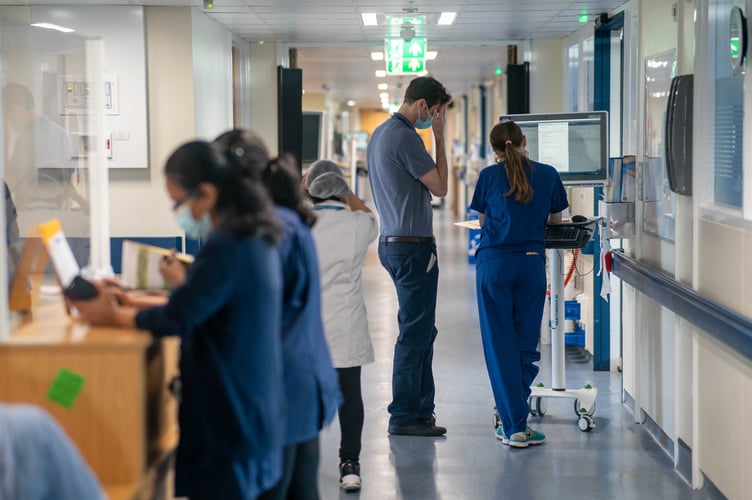More than 15,000 patients were waiting for routine treatment at Robert Jones and Agnes Hunt Orthopaedic Hospital in September, new figures show.
It comes as the Health and Social Care Secretary Wes Streeting announced a package of "tough" reforms to tackle the NHS crisis, including the introduction of a new league table of NHS providers.
NHS England figures show 16,408 patients were waiting for non-urgent elective operations or treatment at The Robert Jones and Agnes Hunt Orthopaedic Hospital NHS Foundation Trust at the end of September – up from 16,244 in August, and 15,016 in September 2023.
Of those, 1,362 (8%) had been waiting for longer than a year.
The median waiting time from referral to treatment at Robert Jones and Agnes Hunt Orthopaedic Hospital was 19 weeks at the end of September – the same as in August.
Nationally, 6.3 million people were waiting to start treatment at the end of September – down from 6.4 million at the end of August.
Siva Anandaciva, chief analyst at The King’s Fund, said: "Transparency is a good aim, but league tables alone will not lead to better and faster care this winter.
"It could result in the unintended consequence of health leaders becoming too focused on reporting upwards to national bodies, instead of outwards to what their local communities need.
"The mix of measures will need very careful implementation to avoid perverse incentives."
He said care outside of hospitals must be factored in, adding: "Shifting more care into the community, reforming social care, and bolstering prevention, will all be key to making our healthcare service fit for the future."
Separate figures show 1.6 million patients in England were waiting for a key diagnostic test in September – the same as in August.
At Robert Jones and Agnes Hunt Orthopaedic Hospital, 1,583 patients were waiting for one of four standard tests, such as an MRI scan or non-obstetric ultrasound at this time.
Of them, 453 (29%) had been waiting for at least six weeks.
Other figures show cancer patients across England are not being seen quickly enough.
The NHS states 85% of cancer patients with an urgent referral should start treatment within 62 days.
But NHS England data shows just 67.3% of cancer patients urgently referred nationally began treatment within two months of their referral.
That was down from 69.2% in August.
Tim Gardner, assistant director of policy at think tank the Health Foundation, said the figures show the immense challenge the Government faces.
Although Mr Gardner highlighted the encouraging fall in the waiting list for routine care and the number of over 52-week waits, he added: "This winter will undoubtedly be a difficult time for the NHS, but seasonal pressures do not have to inevitably cause an annual winter crisis."
Welcoming the new NHS reforms, he said: "It’s right for the Health and Social Care Secretary to focus on value for money and to be clear about the performance expected, but the measures announced yesterday must be supported by other policies to improve performance.
"Improvement will only happen if staff believe these new processes to be fair, that support is genuine, and that their voice is heard – or we risk further lowering of morale.
“Creating a health service that is fit for the future will rely on securing long-term investment and reform in next year’s spending review and 10-year plan."
Health and Social Care Secretary Wes Streeting said: "It is welcome to finally see progress start to be made on the backlog.
"Since we ended the strikes, we have been ramping up delivery of an extra 40,000 extra appointments every week.
"The extra investment in the Budget for new surgical hubs and scanners, plus the reforms announced this week to drive up productivity, will cut waiting lists further and get patients seen faster."




